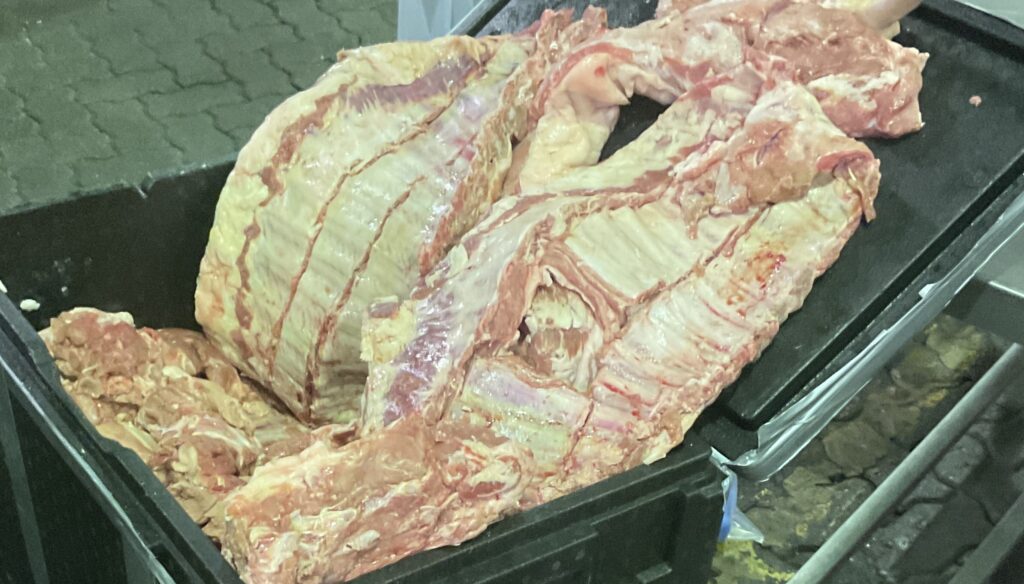Shocking new figures highlighting the volume of illegal meat imports being intercepted at the Port of Dover have prompted fresh calls for the government to ensure this work is properly funded.
During the weekend of December 6 and 7 alone, more than 6 tonnes of illegal meat was seized by Dover Port Health Authority (DPHA) during a 14-hour period. This included pork from affected areas in Romania, where African swine fever is rife across the country. This came after 15 tonnes of illegal product was seized during November.
At the end of last year, it emerged that, despite stretched a limited budget and stretched resources, DPHA, supported by UK Border Force, had seized 57 tonnes of illegal meat since the introduction of new ASF controls in September 2022.
Over the past 12 months that figure has soared to more than 147 tonnes, despite DPHA staff only providing 20% operational coverage at the Port of Dover due to budgetary pressures. This confirms that the headline figures only represents the tip of the iceberg in terms of the volumes coming through the UK’s busiest port.
Examples of meat seized last weekend include:
- Pork from an ASF-affected area in Romania for commercial presentation for retailers, displaying a mark indicating it is for the Romanian market only and not permitted for export. It was exported without temperature control, with no paperwork, CHED (Common Health Entry Document) or health certificate.
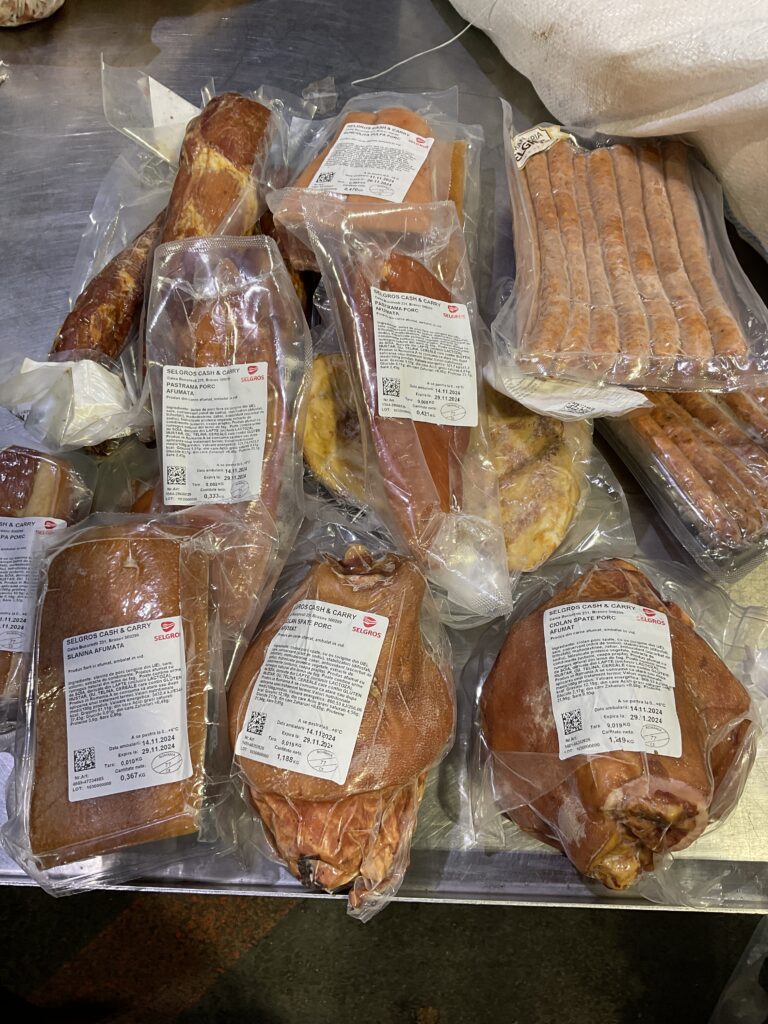 Unlabelled pork from Romania packed in insulated boxes without temperature control. It was unlabelled and not pre-notified, with no ID mark, paperwork, CHED or health certificate.
Unlabelled pork from Romania packed in insulated boxes without temperature control. It was unlabelled and not pre-notified, with no ID mark, paperwork, CHED or health certificate.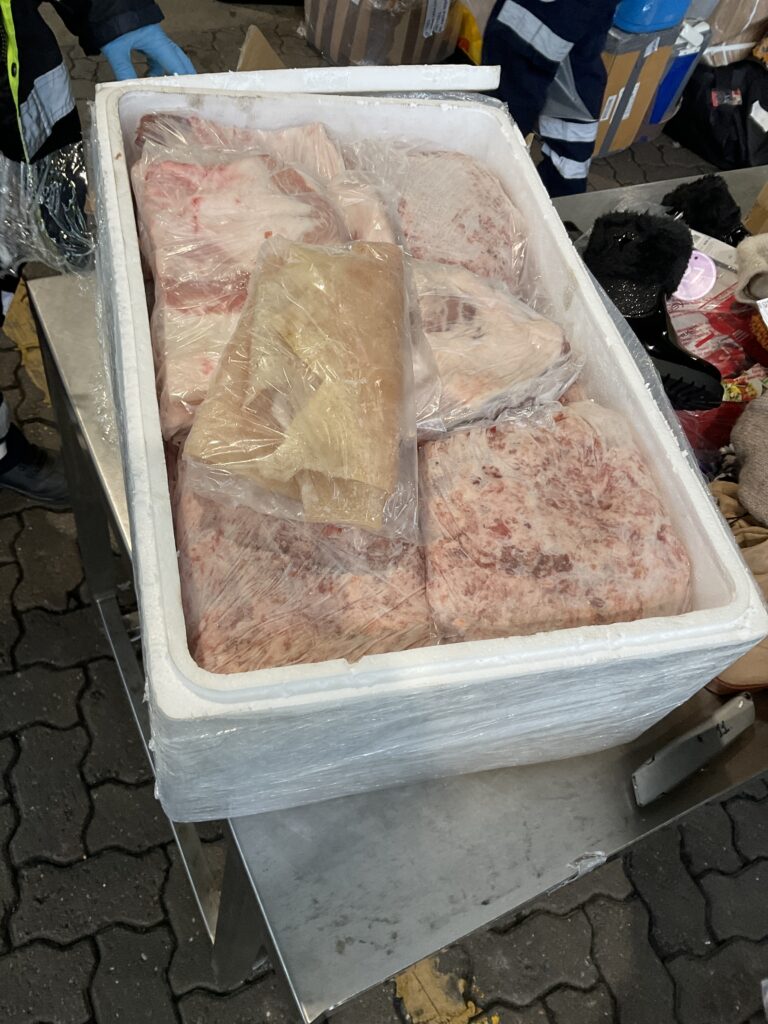 Unwrapped sides of pork in non-food grade plastic boxes, described as ‘Romanian transported’, without temperature control and with no health mark/stamp, paperwork, CHED or health certificate. The ‘messy’ consignment created a clear contamination risk.
Unwrapped sides of pork in non-food grade plastic boxes, described as ‘Romanian transported’, without temperature control and with no health mark/stamp, paperwork, CHED or health certificate. The ‘messy’ consignment created a clear contamination risk.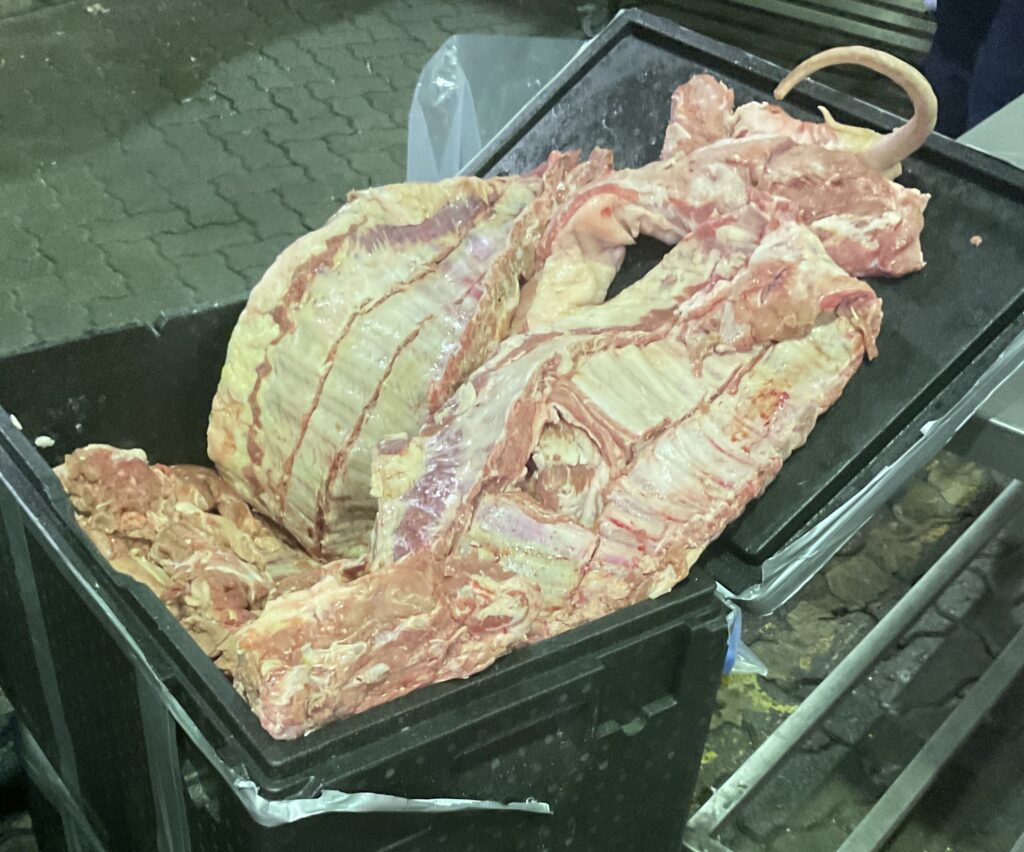 Unlabelled ‘rest of the world’ poultry from an unknown country, transported in cardboard boxes without temperature control, and with no ID mark, paperwork, CHED or health certificate.
Unlabelled ‘rest of the world’ poultry from an unknown country, transported in cardboard boxes without temperature control, and with no ID mark, paperwork, CHED or health certificate.
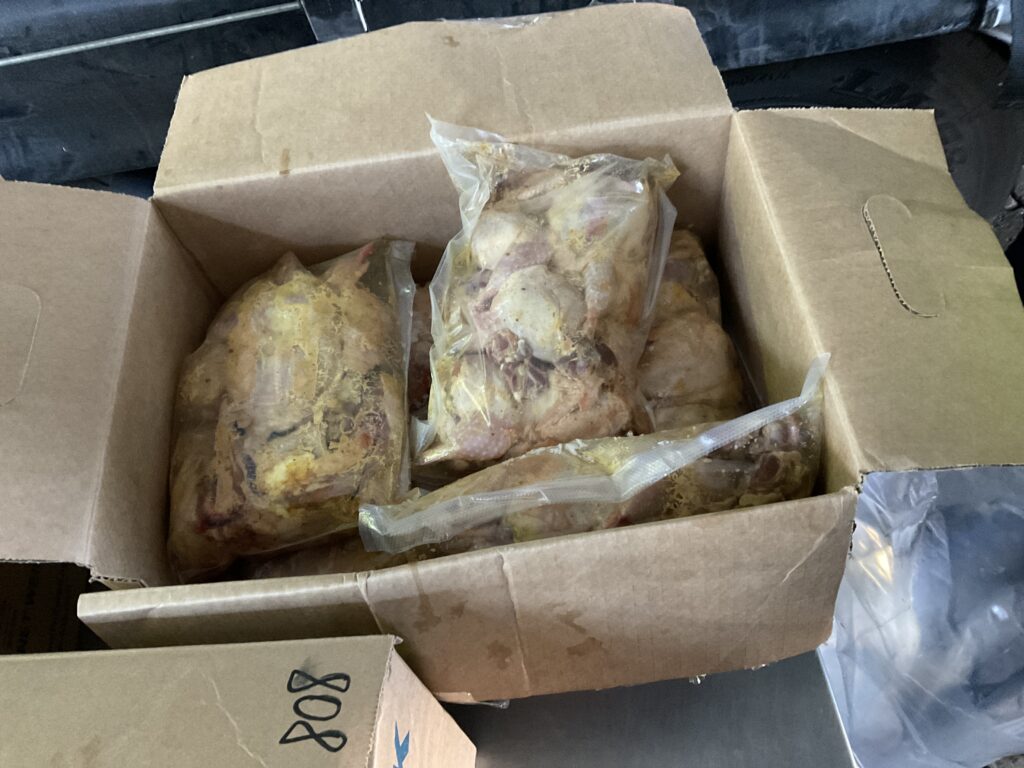
ASF spread
The discovery of so much pork from Romania is a particular concern. As ASF has spread across Europe in recent years, Romania has been the worst-affected country, with 537 outbreaks recorded in domestic pigs in 2023. With continued cases this year, the whole country has been under restriction, with pork exports prohibited from infected areas.
A total of 14 European countries reported domestic ASF outbreaks in 2023, and 18 reported cases in wild boar. ASF has emerged in new areas where of Europe where it had not previously been present, most notably northern Italy, where it has had a huge impact on the commercial pork sector, and western Germany, where both domestic pigs and wild boar have been affected since the summer.
Deeply concerned
NPA chief executive Lizzie Wilson said the pig sector and wider farming community would be ‘deeply concerned’ by the latest revelations.
“ASF poses a huge threat to our domestic pig sector and the fact that so much illegal product, much of it from parts of Europe with serious ASF problems, is a massive concern,” she said.
“It is not just pork. DPHA is finding illegal products from all farm species, which not only threatens the health of our national livestock, but also poses a very real human health risk, as product in such vast quantities will most likely be sold into the food service sector.
“We would like to put on record our thanks to DPHA for their phenomenal work in extremely tough conditions with a limited budget and stretched resources.
“But we know so much more is getting through our ports than is being intercepted, and we urge the government to rapidly come up with the funding they need before it is too late. The full cost of a notifiable disease outbreak, especially foot and mouth disease, will far outweigh this modest additional funding many, many times over.”
Commercial route
NPA senior policy adviser Tom Haynes highlighted how flaws in the government’s new Border Target Operating Model – including the automatic clearance mechanism designed to prevent a build-up of traffic at the Sevington inland border control post – meant opportunistic criminals were now targeting the commercial route.
“We are extremely concerned that vulnerabilities in the BTOM are now being exploited by criminal importers, with increasing quantities of illegal meat now entering the UK through the commercial route, in addition to the personal imports route,” he said.
He said, thanks partly to the NPA’s lobbying work, that MPs were becoming increasingly interested in the issue. “This is the single biggest issue for the pig sector and we will keep the pressure up,” he said.
Funding cuts
DPHA was told by Defra just before Christmas 2023 that it was withdrawing 66%, £2m out of £3.2m, of funding from the DPHA in 2024/25, starting in April, and the remaining £1.2m in 2025/26.
DPHA has repeatedly warned since that this will seriously affect its ability to carry its checks on illegal meat imports, compromising the UK’s biosecurity and leaving it vulnerable to diseases like ASF.
Daniel Zeichner, shadow farming minister at the time, described the cuts as ‘both foolish and dangerous’. Now food security minister, he recently told MPs he shared their concerns about the ASF threat from illegal meat imports and said Defra was working with DPHA to ‘make sure that everything that needs to be done can be done’.
A Defra spokesperson said the department was ‘currently in discussion with DPHA to agree future funding to tackle illegal imports, with a sharp focus on identifying illegal pork or pork products in accordance with ASF safeguard measures’.
“Protecting UK biosecurity is one of our key priorities, and we are working with Border Control Posts to ensure our robust border controls are enforced,” they said.
“We are unequivocal that importing illegal meat products is unacceptable – which is why suspected products are routinely checked at the border to ensure they don’t reach our shores.
“The UK has never had an outbreak of African Swine Fever, but we are not complacent and have strict import controls in place to manage its risk.”




